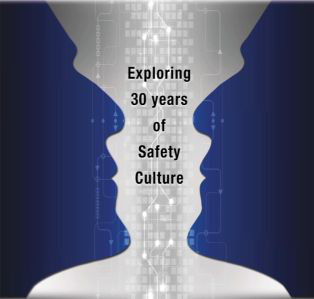Speaker
Synopsis
Operating experience from TMI and a number of other major incidents, and more generally experience from three decades of nuclear facility operations have shown the value of safety culture's contribution to nuclear risk management. More than ever, this particular aspect of human and organizational factors (HOF) is central to the AREVA group's concerns as it faces new challenges.
The first generation of operators started up the facilities and optimized their operation. This first phase gave them a better understanding of operations and related limits, particularly through testing and start-up operations and the responses that had to be found for all of the technical issues that arose. All of these interactions offered opportunities to make the safety challenges of processes and facilities tangible and directly perceptible. The young operators of those bygone years are now the ones who are “in the know” in the organizations, the ones with unique technical know-how and a multi-layered perception of the risks involved.
Those first generations of operators, with their unique operational knowledge and know-how, are gradually leaving the industrial world. Replacing those skills creates a new set of challenges.
Concomitantly, the French nuclear safety authority also benefitted from these facility start-ups to increase its skills by sharing in the learning process concerning the facilities’ operational realities and in the construction of a safety configuration program, and by gaining a concrete perception of risk. This fostered the mutual trust that is vital and integral to facility safety.
Added to this change of generation are constraints such as the acceptability of risk-related activities to society, requiring transparency and the need for ongoing nuclear operations to be carried out in an acceptable economic framework, which in turn requires assurance of an appropriate level of industrial performance while ensuring that safety levels remain in line with prescribed standards.
AREVA has created specific training measures, qualification programs and organizations to ensure that all of these developments are under proper control.
Presented in this article, these measures address the specific traits of new generations of operators: their value systems, their risk perception and the image they have of facility reliability.
The setting for this work is characterized by a proliferation of regulatory requirements, even though the facilities themselves have integrated in their process some benefits from continuous safety improvement. Whereas previously safety resulted from a weighted balance between managed safety (defined based on best practices from experience and recognized by all) and regulated safety (defined based on regulatory requirements), we are seeing regulated safety assume an increasingly dominant role. The sharp upward trend of regulatory requirements in France makes one wonder about their real impacts in terms of continuous safety improvement. In fact, applying this volume of requirements to operations is a heavy burden for operators. The assimilation of each of these new measures is an issue, and finding and getting acceptance of responses proportionate to the stakes involved in the operational application of all these requirements remains a challenge.
| Country or International Agency | France |
|---|---|
| Type "YES" to confirm submission of required Forms A and B via the official channels | yes |

